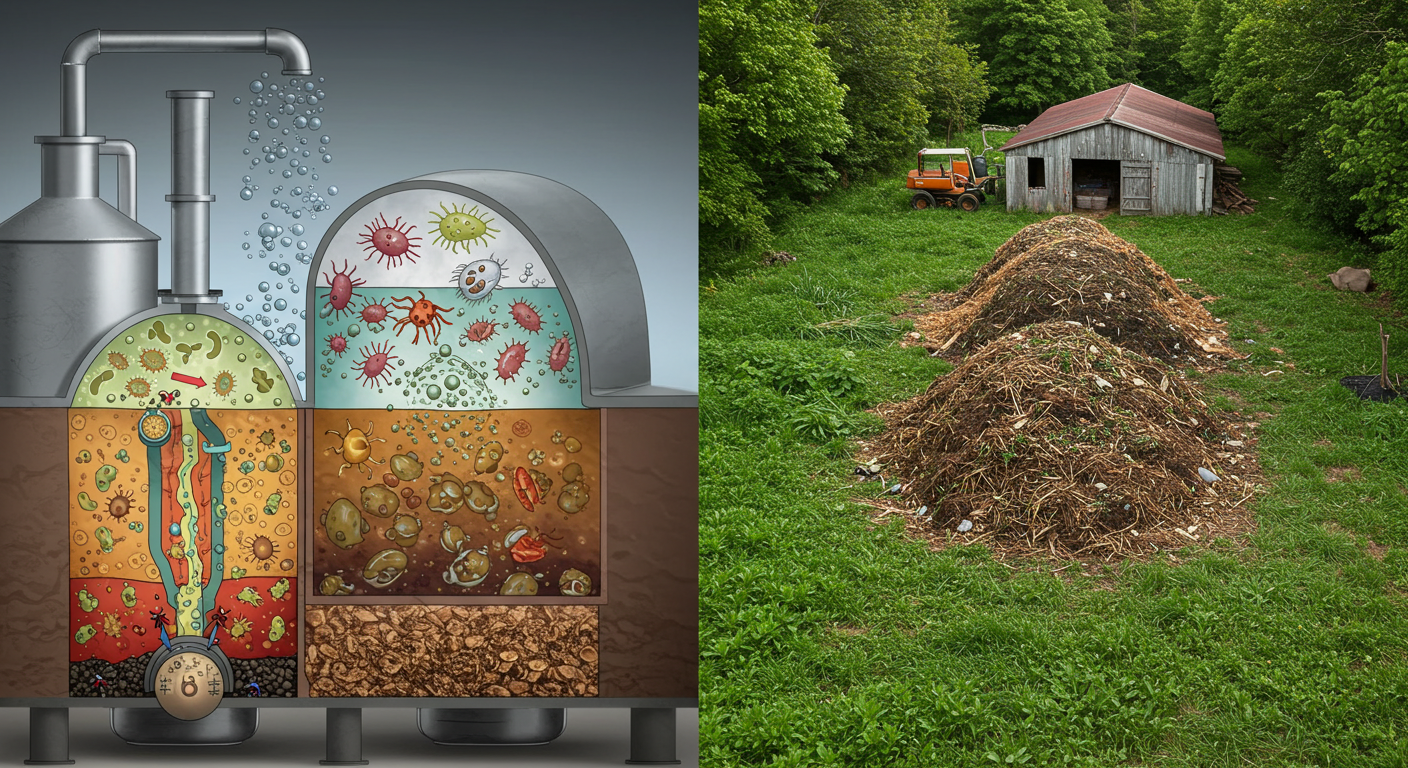Introduction to Instructional Videos
The advent of digital technology has transformed the way knowledge is disseminated, particularly in the culinary sphere. Instructional videos serve as a powerful medium for sharing expertise in preparing and cooking farm produce. They not only promote agricultural products but also provide an avenue for engaging with a diverse audience. Through demonstrative and accessible content, these videos bridge the gap between growers and consumers, fostering a sense of community and awareness about the nutritional benefits of fresh produce.
One significant advantage of instructional videos is their ability to cater to various learning styles, with a notable emphasis on visual learning. Research indicates that people often retain information better when it is presented visually, which is especially pertinent in cooking. By utilizing step-by-step demonstrations, farmers and chefs can effectively communicate cooking techniques, ingredient selection, and presentation skills. This format encourages viewers to replicate the process at home, ultimately enhancing their cooking skills and boosting their confidence in the kitchen.
Furthermore, creating instructional videos for farm produce allows producers to showcase their products in an engaging manner. By illustrating how to handle, prepare, and cook fresh ingredients, these videos inform audiences about the versatility of farm produce. This can lead to increased sales, as consumers are more likely to purchase items they understand and feel connected to. In addition, by employing storytelling techniques in the videos, producers can share their passion for farming and culinary arts, creating a personal touch that resonates with audiences.
In summary, the significance of instructional videos in today’s digital landscape cannot be overstated. They serve as an essential tool for education and promotion, enhancing both the cooking experience and the appreciation of farm produce.
Choosing Your Farm Produce
When embarking on the journey of creating instructional videos centered around farm produce, the selection of ingredients is paramount. First and foremost, it is advisable to consider the seasonal availability of produce. Seasonal ingredients tend to be fresher and offer better flavor, making them more appealing to your audience. By choosing items that are in season within your locality, you not only enhance the taste of your recipes but also support sustainable farming practices.
Furthermore, showcasing unique or specialty items cultivated on your farm can add an interesting dimension to your videos. Such ingredients can capture the curiosity of viewers who may not be familiar with them, thus encouraging them to try their hands at cooking with different produce. Highlighting these unique items not only educates your audience but also promotes the diversity and richness of local agriculture.
Understanding your audience’s preferences is another critical factor in the selection process. If your target demographic is primarily health-conscious individuals, consider featuring produce that aligns with current dietary trends, such as organic vegetables or superfoods. Alternatively, if your viewers are families seeking quick meal ideas, prioritize selecting easy-to-cook produce that offers versatility in recipes.
Equally important is the emphasis on the freshness and overall quality of the farm produce chosen for your videos. Fresh ingredients not only deliver superior taste but also thrive visually on camera, enhancing the visual appeal of your content. By prioritizing quality, you can ensure that your instructional videos are both informative and aesthetically pleasing, captivating viewers and encouraging them to replicate what they see in their own kitchens.
Planning Your Video Content
Creating an engaging instructional video begins with a well-structured plan. The first step in this planning stage involves developing a comprehensive recipe outline. It is vital to detail each ingredient required, along with the quantities and any preliminary steps that need to be taken before filming begins. This not only helps streamline the cooking process but also ensures that viewers can easily follow along.
Next, deciding on the structure of the video is crucial. A common approach is to divide the content into manageable segments, such as introduction, preparation, cooking, and final presentation. This division allows for smoother transitions and helps to maintain viewer engagement. It may be beneficial to begin with an overview of the dish, followed by highlighting its significance or origins, thus adding an informative layer to the content. Following this, show the preparation steps in chronological order, ensuring to highlight any important cooking techniques that enhance the dish’s flavor or texture.
Additionally, featuring the necessary cooking equipment is essential for clarity. Viewers often appreciate knowing what tools are required before they start cooking, and demonstrating their use can help demystify more advanced techniques. Including tips on how to choose the right equipment can provide valuable insights to your audience.
Moreover, incorporating storytelling elements into the video is a powerful way to engage your viewers. Sharing personal anecdotes related to the dish or emphasizing its cultural significance can create a connection with the audience. Ultimately, an effective instructional video not only teaches viewers how to prepare and cook a dish but also invites them into a narrative that enriches their experience. This thoughtful preparation lays the foundation for a successful cooking video that fulfills both educational and entertainment purposes.
Scripting and Storyboarding
Creating effective instructional videos, particularly those focused on preparing and cooking farm produce, begins with a well-crafted script and a detailed storyboard. A script serves as the backbone of the video, ensuring clarity of message and maintaining focus throughout. By outlining key points, dialogue, and transitions, the script helps the presenter convey information concisely while engaging the audience. It is essential to use language that is accessible and relatable to viewers, which can transform complex culinary techniques into manageable steps.
Storyboarding complements the script by providing a visual representation of how each shot will unfold. This process allows the creator to visualize the flow of the video, including the framing of each scene and the sequencing of shots. By sketching out scenes, creators can identify potential issues with transitions or pacing early on, allowing adjustments to be made before filming begins. A well-planned storyboard will facilitate smoother shooting days and a more cohesive final product.
Incorporating personality and instruction into the script is crucial for keeping the audience engaged. To achieve this, consider integrating anecdotes, humor, or personal experiences related to the produce being showcased. This not only humanizes the video but also makes it more relatable. Moreover, using instructional elements such as tips, tricks, and clear calls-to-action helps viewers feel empowered to replicate the dishes at home.
In conclusion, effective scripting and storyboarding are vital for creating engaging and informative instructional videos on preparing and cooking farm produce. These foundational steps ensure that the content is not only informative but also entertaining, fostering a connection between the presenter and the audience while enhancing the learning experience.
Equipment and Setup for Video Production
Producing high-quality instructional videos requires careful consideration of equipment and the setup of your filming space. The primary tool for video production is the camera. While professional cameras offer superior quality, many smartphones today are equipped with advanced features that can suffice for pleasant visual output. When selecting a camera, prioritize one with good resolution and low-light performance to ensure clarity in your cooking demonstrations.
In addition to the camera, lighting is crucial for achieving a well-lit and visually appealing video. Natural light is ideal, so, if possible, film your videos near a window during daylight. However, for continuous shooting or in low-light conditions, you might consider investing in softbox lights or ring lights. These tools help eliminate shadows and highlight the colorful aspects of your farm produce.
Audio quality is another vital component in video production. The onboard microphone on most cameras does not provide the best audio clarity, which is why an external microphone is recommended. Lavalier microphones are particularly useful as they can be clipped onto your clothing, allowing for hands-free operation while maintaining clear sound quality. Alternatively, shotgun microphones can capture sound directionally, focusing on your voice while minimizing background noise.
Editing software also plays a significant role in the finished product. Tools like Adobe Premiere Pro, Final Cut Pro, and even simpler programs like iMovie allow you to edit your footage seamlessly, add titles, and incorporate transitions. For beginners, user-friendly options like Filmora can ease the learning curve without overwhelming complexity.
Lastly, organizing your cooking space is essential for effective filming. Consider the background aesthetics and ensure that the filming area is tidy and visually appealing. Position the camera at eye level, and explore different angles to enhance the instructional quality of your video, making it easier for viewers to follow along with your cooking process.
Filming Your Cooking Process
When it comes to filming your cooking process for an instructional video, several key techniques can enhance both the quality and clarity of your presentation. Start by ensuring that your filming environment is well-lit; natural light is preferred, as it provides an authentic representation of the color and texture of the ingredients. Avoid using harsh overhead lighting, which can create unflattering shadows. Instead, consider using soft diffused light sources placed strategically around your kitchen.
The setup of your camera is equally vital. Use a tripod or stable surface to prevent shaky footage. A steady shot maintains professionalism, allowing viewers to focus on the cooking process rather than the camera movement. Position the camera at an angle that best captures the action—overhead shots are particularly effective for demonstrating various techniques, while close-ups are splendid for showcasing texture and detail. Engage your audience by alternating between wide shots and close-ups throughout your cooking narrative.
Maintaining an appropriate pace is essential for viewer comprehension. Present each step clearly and concisely, avoiding the temptation to rush through the process. Remember, the goal is to educate; thus, clear instructions must accompany critical moments. Descriptive commentary is helpful, and on-screen text can reinforce important points, ensuring that viewers can easily follow along. Visual cues, such as indicators of doneness or texture changes, are also beneficial in highlighting key techniques.
As you film, keep your energy levels high and maintain an engaging demeanor. Practicing your delivery can boost confidence and create a more enjoyable experience for the audience. Ultimately, the combination of clear instructions, visually striking techniques, and well-thought-out camera work can lead to an educational video that resonates with viewers and enhances their cooking skills.
Editing Your Instructional Video
Editing is a crucial phase in the creation of your instructional video, where raw footage transforms into a polished and engaging presentation. The editing process begins with reviewing all the recorded clips to select the most relevant segments that effectively demonstrate the preparation and cooking techniques of your farm produce. This cutting process allows you to eliminate any extraneous footage that does not contribute directly to the instructional goals.
Once you have identified the key clips, the next step involves organizing the selected footage in a logical sequence. This structure not only enhances the flow of information but also helps in maintaining the viewer’s attention. It is important to create a coherent narrative that guides the viewer through each step of the cooking process. Transition effects can be employed between different segments to create smooth visual changes and enhance the overall viewing experience.
In addition to transitions, incorporating overlay text can significantly enhance your video. Text elements are useful for emphasizing important points, highlighting ingredients, or providing additional instructions. When choosing fonts and colors for overlay text, ensure they are legible and consistent with the video’s overall aesthetic. This consideration contributes to a professional-looking final product.
Moreover, adding background music or sound effects can elevate the instructional video, making it more engaging. Select music that complements the pacing of your video—an upbeat tune for faster sequences or softer music for more detailed cooking sections. However, it is crucial to ensure that the audio does not overshadow the spoken instructions. Balancing the sound levels is an essential step in providing clarity and enhancing viewer comprehension.
Lastly, take the time to review the edited video thoroughly. Check for coherence, pacing, and overall engagement. A well-edited instructional video not only informs but also captivates an audience, making them more likely to return for future content. An attention to detail during the editing process will ultimately result in a professional output that reflects the quality of your farm produce
Sharing and Promoting Your Videos
Effectively sharing and promoting your instructional videos is crucial for reaching a wider audience and maximizing engagement. One of the most popular platforms for video content is YouTube, where creators can upload videos, enhance their visibility, and connect with viewers. Optimization begins with crafting titles that are both descriptive and engaging. Incorporating relevant keywords related to cooking and farm produce will improve discoverability, so consider phrases that potential viewers might search for.
Additionally, the video description should provide a concise overview of the content, including key points and the value proposition for viewers. Utilizing tags that correspond to the video topic can further enhance its reach. This aspect is vital for ensuring that your video appears in search results and recommendations, bringing in new viewers interested in farming and cooking tutorials.
Social media platforms also play a significant role in promoting instructional videos. Sharing snippets or highlights from your videos on platforms such as Facebook, Instagram, and Twitter can entice your existing followers to check out the full content. Creating visually appealing images or short clips can capture attention and encourage shares, potentially expanding your audience base.
Moreover, engaging with viewers is essential in building a community around your content. Responding to comments, asking for feedback, and creating polls can foster a sense of connection. You may also encourage viewers to share their cooking experiences with your recipes or farm produce, creating a two-way dialogue that enhances viewer retention and loyalty. Collaborating with other content creators in the niche can also provide cross-promotion opportunities, attracting their audience to your instructional videos.
Engaging with Your Audience
Engaging with your audience after publishing your instructional videos is crucial for building a loyal community. The relationship you cultivate with viewers can significantly impact the success of your content and the growth of your channel. One effective strategy is to actively respond to comments. By acknowledging viewer feedback and addressing any questions, you demonstrate that you value their input. This not only fosters a sense of belonging but also encourages others to comment, enhancing overall interaction.
Soliciting feedback is another valuable practice. After sharing your video, consider inviting viewers to share their thoughts on the content. Questions like “What did you enjoy most about the video?” or “Is there a topic you would like to see covered next?” can open lines of communication and provide insights into your audience’s preferences. This interaction not only helps in refining your future content but also reassures your audience that their opinions matter.
Creating follow-up content based on viewer feedback can further strengthen engagement. If comments indicate a keen interest in a specific technique or recipe, producing a video that dives deeper into that subject can show that you are listening and responsive to your audience’s needs. Additionally, consider hosting live Q&A sessions or discussions around the topics presented in your videos. This real-time engagement can significantly deepen the viewer’s connection to your content.
Building relationships is essential in any content creation endeavor. Encouraging viewer interaction through polls, shareable content, or community challenges can foster loyalty and create a sense of community among your audience. By consistently engaging with viewers and valuing their contributions, you create a supportive environment where they feel invested in your content and eager to return.





